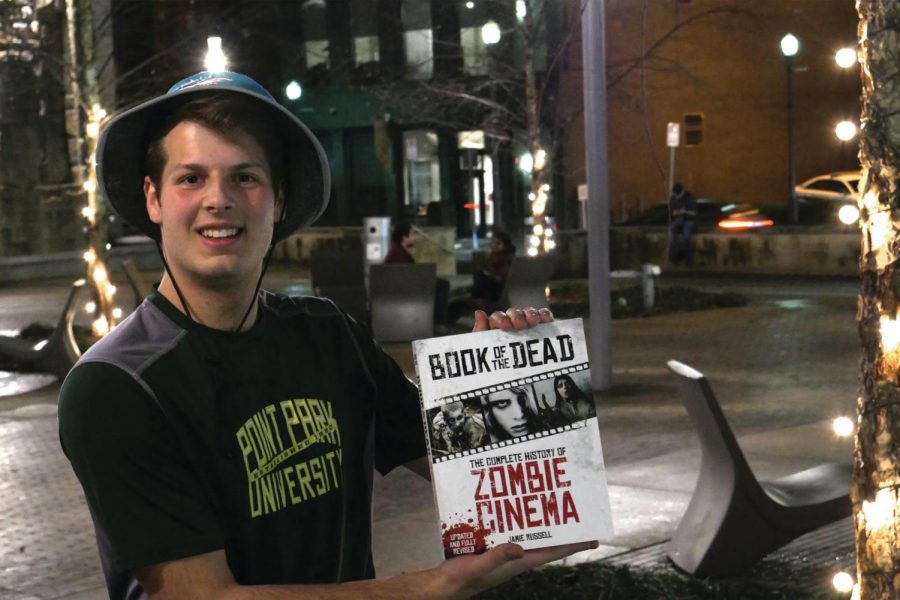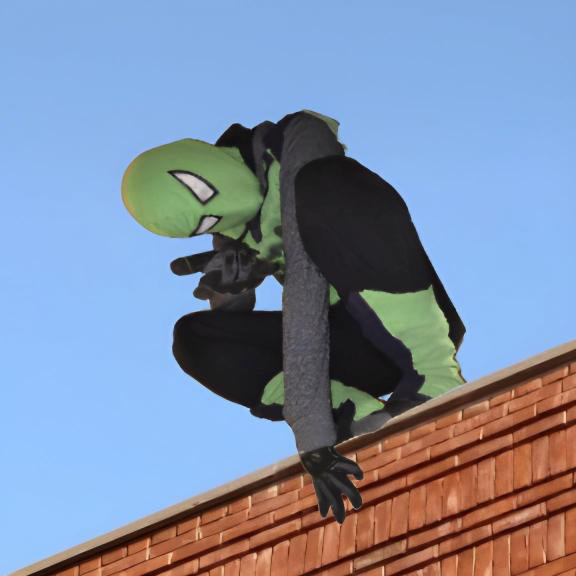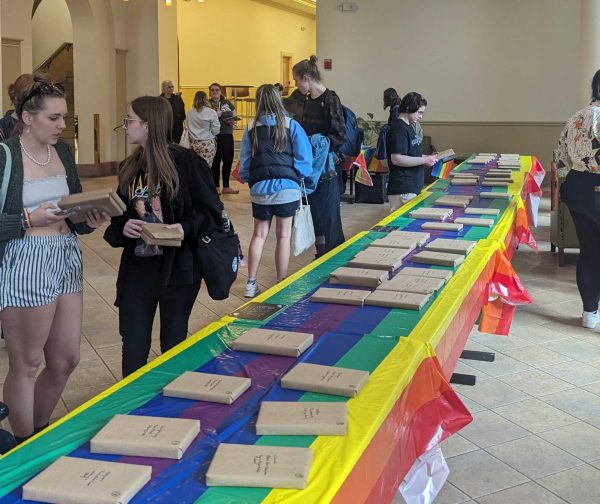New Zombie Cinema class creeps into new semester
Photo by Ethan Leisie
Sophomore Kyle Kuhns poses with the texbook used in the university’s new Zombie Cinema class taught by Matthew Pelfrey.
January 23, 2018
A new course this semester is allowing the living to study the undead and it has nothing to do with forensic science.
Zombie Cinema and the Rise of American Anxiety is a new course offered at Point Park University this semester. It is a creation of Matthew Pelfrey, assistant professor and director of the M.F.A. screenwriting and playwriting program. He was presented with the idea by Nelson Chipman, previous M.F.A. director.
“[Chipman] had always wanted to do a zombie class, and knew that I loved zombie movies. He suggested that I do it,” Pelfrey said in an interview Thursday. “It was originally his idea that we should have a zombie class, and I jumped at.”
“Night of the Living Dead,” one of the most influential zombie movies ever made, was filmed in Pittsburgh. This class, according to Pelfrey, is inspired by George Romero, director of the “Night of the Living Dead” trilogy.
“It just seems that it’s something that should be claimed more,” Pelfrey said. “So in a sense, the whole zombie class is a tribute to George Romero and his film and his influence in pop culture globally.”
The class is not just about sitting in a theater and watching people getting ripped apart by the undead. Students are working to study society at the time of each film’s creation and figuring out the underlying meaning of each.
“Zombies are fascinating because they’re a great monster that represents a lot of the anxieties of the modern age, especially post-9/11,” Pelfrey said. “After 9/11, when we started having mass-casualty events with terrorism, suddenly you have a monster that’s more in-tune with our fears now. Lots of people can die at once.”
The course starts out with the movie “White Zombie,” which is considered the first feature length zombie film, and works its way to more modern movies like “Shaun of the Dead.” The class will also cover newer, non-traditional zombie films that feature an element of zombification, like Jordan Peele’s 2017 Thriller “Get Out.”
The class is currently full, with 31 students enrolled. The class, though specified as a cinema course, is not just for Conservatory of Performing Arts Students. The class is filled with students of every year and a myriad of majors, anything from multimedia to screenwriting to sports, arts and entertainment management (SAEM).
Zac Seymour, a junior public relations and advertising major, said the class was ideal for him, as it is fun and fills his Interpret Creative Works core requirement.
“I figured it was going to be a fun class, just by the title,” Seymour said in an interview in Lawrence Hall Lobby on Monday. “If it’s a class about zombies, it’s not going to be boring.”
Before the class, Seymour said that he had never seen a zombie movie, but he is enjoying the historical elements of the class’s curriculum.
“It’s about tying that in and finding the deeper meaning, which sounds silly because it is about zombies,” Seymour said. “But all of these movies have deeper meanings, so that’s the point.”
Similar to Seymour, Kyle Kuhns, a sophomore SAEM major, said it is interesting to look into the societal and cultural significance behind each film.
“There were a lot of zombie movies that got really popular after 9/11, so it’s like seeing society breaking down, which is what the zombies mean,” Kuhns said in an interview on Monday. “It’s about the breakdown of society and how society reacts to it.”
Zombie Cinema and the Rise of American Anxiety does not focus on the technical aspects of the films, rather the history and context behind each of the films shown in class.
The class, which meets for a three-hour period on Thursdays, will typically spend an hour at the beginning of the class listening to Pelfrey lecture about the movie they are going to be watching. After watching the movie, Pelfrey looks for student feedback on the film.
“We ask questions about the film,” Pelfrey said. “Not just artistic stuff about, ‘was it good or was it bad?’ but about what the movie is really saying.”
Students do as much work within Zombie Cinema as they would in any other class. The course requires students to engage in class conversations, take tests and present a final project.
Pelfrey said that he only offers extra credit in the course once, and that is during the presentation of the finals. Students may earn extra credit by presenting their projects while wearing zombie makeup.
Seymour said that he and other students are excited and will be participating to earn extra credit.
Students are enjoying the new class and said they are recommending it to other students in future semesters.
“It’s a fun class. If you’re not really into writing short stories or anything, definitely take Zombie Cinema,” Kuhns said. “There’s still a decent amount of writing and weekly assignments, but it’s on something that is not short story or literature or nonfiction.”












